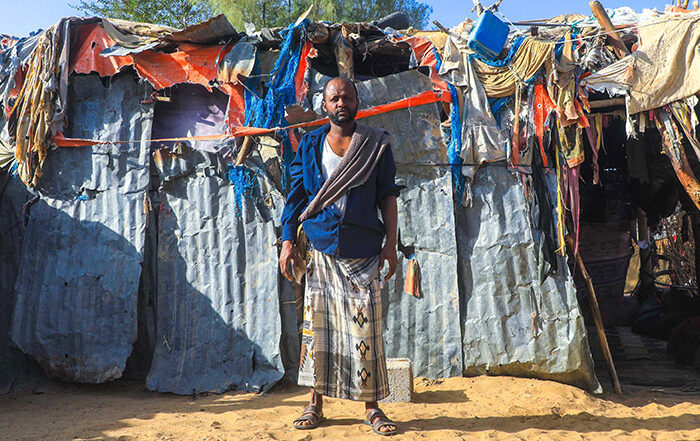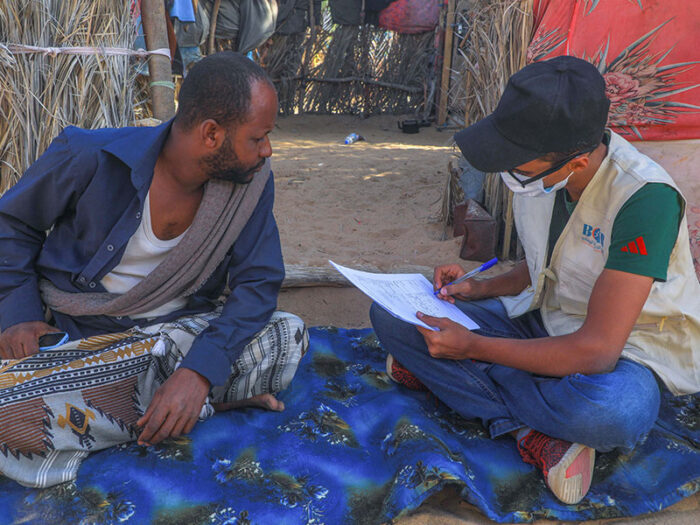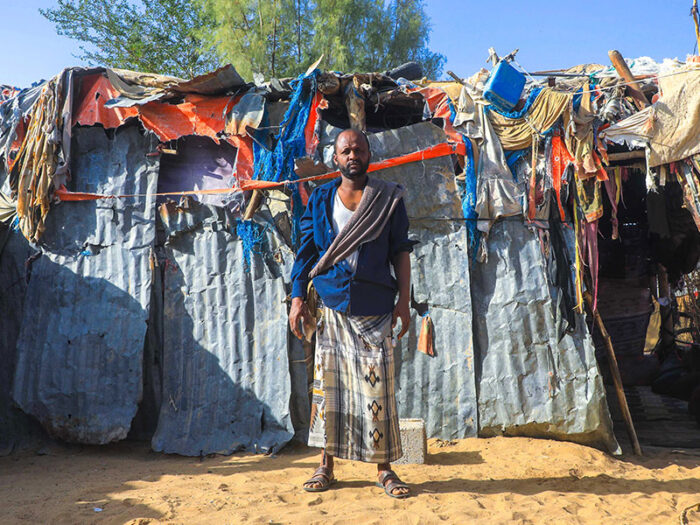
Yemen
ShelterBox is responding in Yemen supporting people without shelter due to the conflict there.
Yemen is currently the world’s worst humanitarian crisis. It is a result of the bitter civil war, starvation, and a failing economy.
Currently, over 7.3 million people in the country have lost their homes and need shelter and other essential items to help them survive.
One of them is Ali. Ali lives in a camp for displaced people in the Marib region of Yemen, with his family of eight.
Our partner BCHR sat down with him during the rapid needs assessments to find out more about his current situation, and why ShelterBox aid is greatly needed in the region.

What were you doing when you were forced to flee your home?
I worked as a porter of merchandise, and provided a living for myself and my family.
Before the war, Ali earned a living loading and off-loading goods from trucks. His house was destroyed during a military attack.
What happened to your home?
It was demolished because of the clashes that were taking place in the area.
After his home was destroyed in these military attacks, Ali’s family fled to Marib camp. Here he collected scraps of metal, bits of materials and oil drums to build a shelter for his family. Other families have even less – they live under trees, covering themselves with palm branches to create a makeshift roof over their heads.

What are your current living conditions?
The conditions are very difficult, there is no work, no pension, and little aid is provided to us by the organizations, and we live in a nest of straw, scrap and some drums.
How does your life look now?
Life is hard, no jobs, no income, prices are very high, in return the aid that we receive is very little, and it is not always given to us, but sometimes.
One factor that makes survival so hard in this camp is the looming threat of diseases. On top of the coronavirus pandemic [which was ongoing at the time of this interview], the country is in the grip of the worst cholera epidemic of modern times. To add to this threat, the combination of a densely populated campsite and lack of sanitation creates a breeding ground for mosquitos that can transmit malaria or dengue fever.
We cannot solve this huge humanitarian crisis, but we can help people like Ali build safer spaces for their families and protect themselves against diseases.
With your support, we can send suitable aid items and provide practical training that will enable families in Yemen and around the world to improve their shelters.
Yemen crisis explained